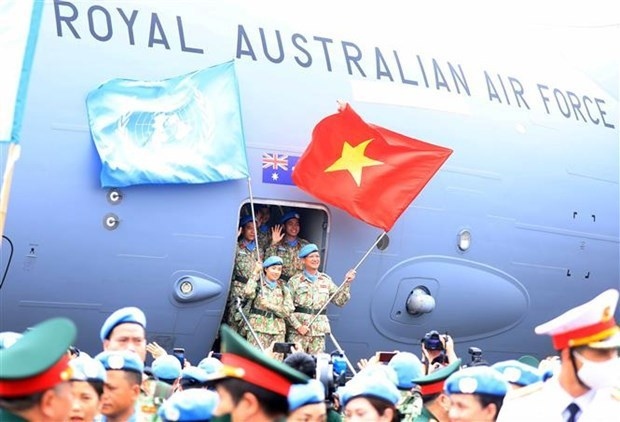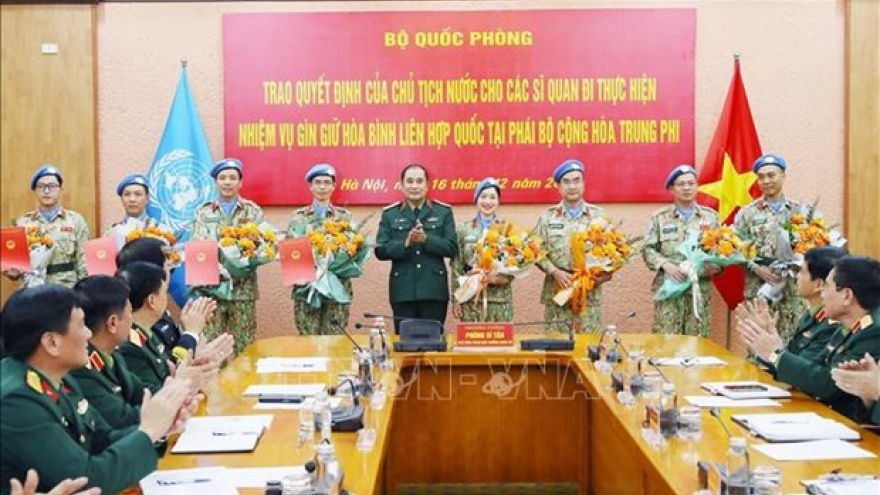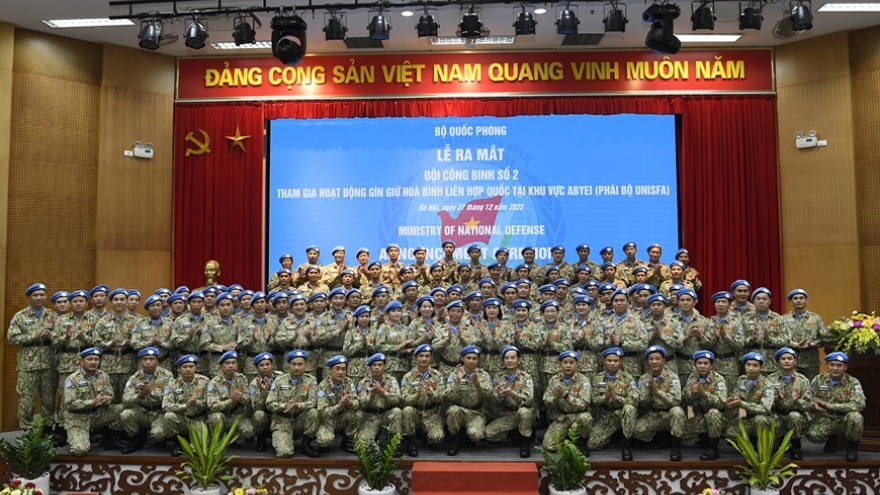Vietnamese women's participation in UN peacekeeping operations impressive
Vietnam has recorded an impressive percentage of women in UN peacekeeping operations, said Caitlin Wiesen, former Resident Representative of the UN Development Programme (UNDP) in Vietnam.

Since the Women, Peace and Security Agenda – an expanded framework towards women’s participation in UN peacekeeping operations – was officially approved in 2000, Vietnam has ensured women’s engagement in peace processes, she added.
Together with the UN, the Vietnamese Government organised a conference on women, peace and security in 2000. The same year, the National Assembly adopted Resolution No. 130/2020/QH14 on Vietnam’s participation in UN peacekeeping operations, covering the gender issue.
The UNDP has supported Vietnam in various activities, helping the country improve the capacity of its peacekeeping forces. Notably, the UNDP and the Ministry of National Defence co-organised an international conference on women’s role and COVID-19 prevention and control in peacekeeping operations in 2020.
The two sides also jointly held another international conference on women and UN peacekeeping operations in November 2022, on the occasion of the visit to Vietnam by UN Under-Secretary-General for Peace Operations Jean-Pierre Lacroix.
The event looked into how to create a firm foundation to enhance women’s engagement and improve their leadership capacity in peacekeeping activities. It has been seen as a step towards the establishment of a peacekeeping centre of the regional level in Vietnam.
The 2028 target for women serving in military contingents is 15%, and 25% for military observers and staff officers, which Wiesen said is feasible for Vietnam once the country carries forwards its achievements.
The UN backs Vietnam’s commitments to playing a more active role towards global peace and security, as well as its target of establishing the centre, focusing on training and improving the capacity of peacekeeping forces, particularly female personnel.
The UN stands ready to provide technical support and mobilise resources to identify major challenges to deploying female forces, while helping the country with expertise, technologies and international capacity, creating an optimal policy environment to make progress in ensuring general equality and peacekeeping, she affirmed.


